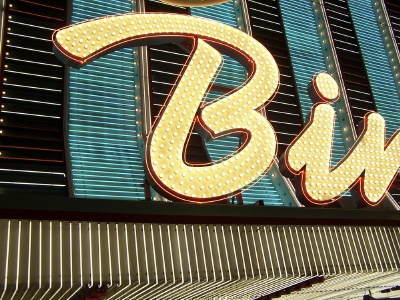|
|
 Playing live action poker for the first
time can be more than a little frightening. Assuming you know the basic rules of the game you will be playing, the transition from
online to live action shouldn't be too painful. If you have never played poker before, then I would suggest learning the basics before
sitting down at a poker table in a brick and mortar
casino. A great way to experiment without any embarrassment is to check out the many free money games being offered online. Once you feel
comfortable heading to the casino, it's a good idea to observe a game before sitting down to play. Playing live action poker for the first
time can be more than a little frightening. Assuming you know the basic rules of the game you will be playing, the transition from
online to live action shouldn't be too painful. If you have never played poker before, then I would suggest learning the basics before
sitting down at a poker table in a brick and mortar
casino. A great way to experiment without any embarrassment is to check out the many free money games being offered online. Once you feel
comfortable heading to the casino, it's a good idea to observe a game before sitting down to play.
If you are new to playing live poker, the fast action might force your brain into overdrive. If you have played online poker, but never
set foot into a brick and mortar, it isn't much easier than it is for the newbie player. Therefore, it is highly suggested that you talk
with someone who knows how casinos work before sitting down.
Most casinos have concierge desks and they are a great place to make your first stop. The front desk will be able to
tell you about the current promotions the casino is offering and will also point you in the right direction. Some casinos offer lessons
or classes for new players and the concierge will be able to tell you where and when those classes take place. The classes are usually short,
but should help the player ease into the experience.
Once you have an idea of the layout of the casino and have decided what game you are going to play, you need to go to the board, which is
where players put their names (or initials) on a list to be seated. In many casinos, there are several boards usually based on
the limits of the game. The concierge or any other casino employee can let you know which area the board of your desired limit is
located in.
The floor staff takes players on a first come first serve basis and will seat you at the appropriate table. If enough players put their
names on the board for a certain game, the floor staff will often start a new game (if space in the casino allows). They will then call
all the names on the board and direct the group to an empty table where a new game will start.
When you take your seat, you need to have the floor staff or dealer change your cash into chips. Most casinos don't allow cash to play
in small to mid-stakes games, so you will most likely not have an option as to whether to change your cash into chips or not. Make sure you
ask what the rules are regarding cash on the table because in many casinos, cash on the table is a big "no-no" and can void a
bad beat jackpot if it is hit.
There is usually no need to ask for chips; simply put your cash on the table and the dealer will call a chip runner to take care of it
for you.
Once you are seated with your chips and begin playing, remember that every player at the table was once new to this experience.
One way to get into the groove of live poker is to pay attention to what is going on at the table and what the other players are doing.
You will find that there are usually players who are willing to help you if you just ask a few questions. If you don't ask, then just kind
of follow what the other players are doing. As long as you pay attention, then the dealer will be able to guide you along without letting
the other players know that you have no clue what is going on. While following proper etiquette is appreciated by your opponents and the
casino staff, it is perfectly normal to be nervous when playing for your first time. Don't sweat it if the other players at the table seem
impatient - they are just trying to make themselves feel good and have all been in the same situation.
Playing live poker should be a fun experience, but getting over the nerves is crucial.
After sitting there for about thirty minutes, you will notice that things will get a lot more comfortable. After a couple of trips to
the casino, you should be an old pro.
Best of luck to you. |
|









